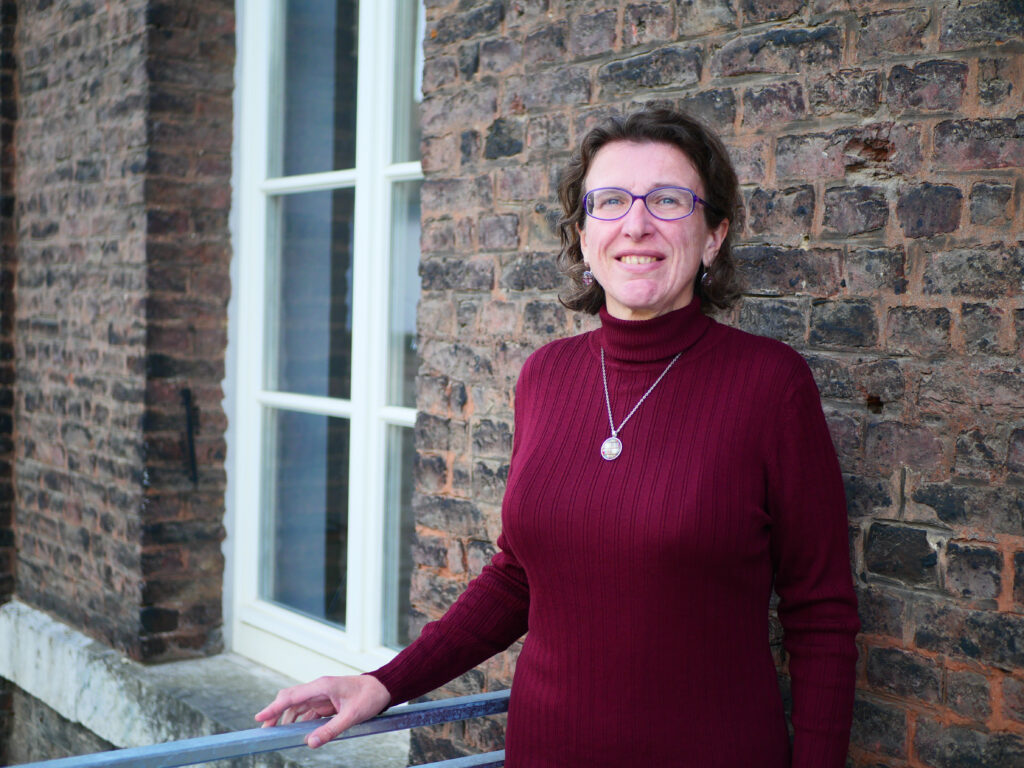c:o/re Senior Fellow 09/22 − 02/24

Anna Laktionova is Professor in the Department of Theoretical and Practical Philosophy, Faculty of Philosophy, Taras Shevchenko National University of Kyiv, Ukraine. The main courses she reads are Practical Philosophy, Theory of Knowledge, Pragmatism in Contemporary Philosophy, Moral Epistemology. She defended her PhD dissertation on «Normativity in Constituting Linguistic Units: a Philosophical Analysis» in 2005. She received the Title of Docent in 2012. In 2016 she defended the Doctor of Science (Philosophy) dissertation «Philosophy of Action and Agency: New Perspective of Theoretical and Practical Philosophical Disciplines». She has been working on Wittgenstein’s legacy and participated in events of the Austrian Ludwig Wittgenstein Society. Some of the crucial points which she maintains in her approach are: the reciprocally additive character of the relation between «is» and «ought»; performativity of personal identity from inside of the agent’s experience; the concept «common world», seen as a «mosaic» of institutions, habituated practices, and samples of contextually appropriate actions
Technology and Agency
The scope of contemporary Practical Philosophy (Philosophy of Action and Agency) is open, principally unlimited. Different philosophical disciplines can engage with it and be reconsidered in accordance with the central concerns of, for example, Practical Philosophy and Philosophy of Action and Agency. My project explores the possibilities of engaging Philosophy of Technology and Philosophy of Science with Practical Philosophy (Philosophy of Action and Agency). To do that, I take it for granted that conceptually ‘technology’ and ‘agency’ are connected and rely on each other. The project proceeds in the following two investigative steps:
- Conceptual reconstruction of the links between: science; technology; technology studies; technique (machinery); knowledge; cognition; information technology; selected findings in the analytic philosophy of technology; ethics of technology; metaphysics of technology; cultural, social, political approaches to technology; philosophies of practices; decision making (different theories: causal, descriptive, normative); rational choices; free will; philosophy of computer science; computational philosophy; artificial intelligence; artifacts; digital.
- Checking the hypothesis about the fruitfulness of non-contraposing humanities-oriented philosophy of technology and engineering-oriented philosophy of technology.
To this end, I plan to rely on recent and classical publications within Philosophy of Technology, Philosophy of Science and other connected fields; the Journals Philosophy & Technology, Techné: Research in Philosophy and Technology, Science and Engineering Ethics, Science, Technology & Human Values, Ethics and Information Technology, NanoEthics, Neuroethics; the internet resources: Society for Philosophy and Technology, 3TU.Centre for Ethics and Technology, Oxford Uehiro Centre for Practical Ethics; Encyclopedias: Stanford Encyclopedia of Philosophy, Encyclopedia of Science, Technology, and Ethics (2005), and finally, Encyclopedia of Applied Ethics (2012).
Publications (selection)
Laktionova, Anna. 2022. Quine, Goodman, Putnam: the Harvard Philosophical School. In Sententiae (41)1: 30-42 (in Ukrainian).
Laktionova, Anna. 2022. Performativity of Actions: Possible Mappings with Jennifer Hornsby’s Views on Acting, Actions, Activity and Agency. In Bulletin of Taras Shevchenko National University of Kyiv. Philosophy 1(6):40-43.
Laktionova, Anna. 2021. Truth, Realism, Relativism: Interconnection and Reciprocal Definability. In Bulletin of Taras Shevchenko National University of Kyiv. Philosophy 2(5):29-36 (in Ukrainian).
Laktionova, Anna. 2019. Criticism, Persuasion, Relativism: Challenging Rationality. In Philosophical Thought 6: 96-104.
Laktionova, Anna. 2017. The concept of Post-Truth in Contemporary Philosophical and Everyday World. In Scientific Studies 288(300): 91-95 (in Ukrainian).

